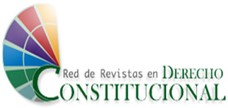A APLICAÇÃO DA PONDERAÇÃO DE PRINCÍPIOS PELO STF
Uma análise da aplicação da ponderação de princípios no Estado Democrático de Direito Brasileiro
Keywords:
Fundamental Rights Theory, Legal Argumentation, Weighting Principles, Maximum Proportionality, Robert Alexy (1945-Abstract
This paper investigates whether the weighting of principles contained in the Theory of Fundamental Rights of the German jurist Robert Alexy has been received by Brazilian higher courts in the molds of a rational legal argumentation. To this end, a comprehensive and applied legal research was conducted, using the discourse analysis technique. Initially, a study was made of the main concepts of Alexy's theory of law, such as the meaning of law and rule, and the distinction between rules and principles. Next, the technique of the Maxim of Proportionality, developed by Alexy to weigh principles in concrete cases, was introduced. We then proceeded to a comparative analysis between three Brazilian jurists who have dedicated themselves to the study of the theory and its reception by the Brazilian higher courts. It was found that there is a divergence among them regarding the acceptance of the theory in its philosophical and structural aspects. The criticisms made by Lênio Luiz Streck are refuted by Alexandre Travessoni Gomes Trivisonno and Júlio Aguiar de Oliveira, who consider that the opponent of the theory would have committed a mistake by taking into account its distorted application in Brazil. Despite the divergences found, it was verified that both supporters and opponents are unanimous in affirming that Brazilian jurisprudence has not understood the need to apply the Maxim of Proportionality according to the precepts of a rational argumentation, capable of avoiding judicial protagonism. Finally, two classic cases from the jurisprudence of the Federal Supreme Court were presented, which corroborated the thesis of non-reception of the weighting of principles in Brazilian soil.
References
ALEXY, Robert. Teoria da argumentação jurídica: a teoria do discurso racional como teoria da fundamentação jurídica. Tradução de Zilda Hutchinson Schild Silva. Revisão técnica da tradução e introdução à edição brasileira Claudia Toledo. 2. ed. São Paulo: Landy Editora, 2005a.
ALEXY, Robert. Teoria dos Direitos Fundamentais. Tradução de Virgílio Afonso da Silva. 2. ed. São Paulo: Malheiros, 2011.
ALEXY, Robert. Teoria dos Direitos Fundamentais. Tradução de Virgílio Afonso da Silva. 5 ed. São Paulo: Malheiros, 2015.
ÁVILA, H. Teoria dos princípios: da definição à aplicação dos princípios. 4ª Ed. São Paulo: Malheiros, 2005.
BARROS, Suzana de Toledo. O Princípio da Proporcionalidade e o Controle de Constitucionalidade das Leis Restritivas de Direitos Fundamentais. 1. ed. Brasília: Brasília Jurídica, 1996.
CARNEIRO, Rodrigo Alvares. A Justificação interna e externa da Máxima da Proporcionalidade como Argumento Jurídico nas Obras de Robert Alexy. Revista de Teorias da Justiça, da Decisão e da Argumentação Jurídica.
CARVALHO, J. B. C. L. Sobre os limites da argumentação jurídica: a desconstrução do ativismo judicial fundado na ponderação de princípios e a reinvenção da legitimidade jurídica nos pensamentos de Jürgen Habermas e Chantal Mouffe. Prisma Jurídico, São Paulo, v. 12, n. 2, p. 649-710, jul./dez. 2013. Disponível em: <https://periodicos.uninove.br/index.php?journal=prisma&page=article&op=view&path%5B%5D=3398&path%5B%5D=2644>. Acesso: 07 abril 2020.
DIMOULIS, Dimitri; MARTINS, Leonardo. Teoria Geral dos Direitos Fundamentais. 3 ed. São Paulo: Revista dos Tribunais, 2011.
DWORKIN, Ronald. Levando os direitos a sério. Trad. De Nelson Boeira. 2. Ed. São Paulo: Martins, Fontes, 2007.
GADAMER, Hans Georg. Verdade e Método I. Tradução de Flávio Paulo Meurer. Petrópolis, RJ: Vozes, 2005.
GOMES, Renata Silva. Realismo jurídico clássico, direito natural e direitos humanos / Renata Silva Gomes. Belo Horizonte, 2019. 304 f.
GUERRA FILHO, Willis Santiago. Teoria da Ciência Jurídica. São Paulo: Saraiva, 2001.
HÄBERLE, Peter. Hermenêutica Constitucional: a sociedade aberta dos intérpretes da Constituição: contribuição para a interpretação pluralista e ‘procedimental’ da Constituição. Sergio Antonio Fabris Editor: Porto Alegre, 1991.
LIMA, André Canuto de F. A teoria dos princípios de Robert Alexy. Revista Jus Navigandi, ISSN 1518-4862, Teresina, ano 19, n. 4078, 31 ago. 2014. Disponível em: https://jus.com.br/artigos/31472. Acesso em: 7 abr. 2020.
MORAES, Alexandre de. Direitos Humanos Fundamentais. 4. ed. São Paulo: Atlas, 2002.
OLIVEIRA, Júlio Aguiar de. Interpretação do direito: entre a despedida do método e o improvável retorno da prudência. Argumenta Journal Law, Jacarezinho – PR,
Brasil, n. 25.
PEDRON, Flávio Quinaud; OMMATI, José Emilio Medauar; SANTOS, Cyntia Cordeiro. A crítica da teoria hermenêutica de Lenio Streck à teoria dos princípios de Robert Alexy. Revista do Instituto de Hermenêutica Jurídica – RIHJ, Belo Horizonte, ano 16, n. 24, p. 101-119, jul./dez. 2018.
RODRIGUEZ, José Rodrigo. Como decidem as cortes?: para uma crítica do direito (brasileiro). Rio de Janeiro: Editora FGV, 2013, p. 62-63.
SILVA, Virgílio Afonso da. Deciding Without Deliberating. International Journal of Constitutional Law, Oxford, v. 11, n. 3, 557-584, 2013, p. 568.
SILVEIRA, Vinicius Loureiro da Mota. Ponderação e proporcionalidade no direito brasileiro. Conteudo Juridico, Brasilia-DF: 03 maio 2020. Disponivel em: https://conteudojuridico.com.br/consulta/Artigos/34807/ponderacao-e-proporcionalidade-no-direito-brasileiro. Acesso em: 03 maio 2020.
STRECK, Lenio Luiz. Verdade e consenso: constituição, hermenêutica e teorias discursivas. 5. ed. São Paulo: Saraiva, 2014.
TRIVISONNO, Alexandre Gomes Travessoni; DE OLIVEIRA, Júlio Aguiar. Uma teoria do Direito sem filosofia?! Crítica às objeções de Trindade e Streck à teoria de Alexy. Disponível em: https://www.osconstitucionalistas.com.br/uma-teoria-do-direito-sem-filosofia-critica-as-objecoes-de-trindade-e-streck-a-teoria-de-alexy. Acesso em: 3 maio de 2020.









